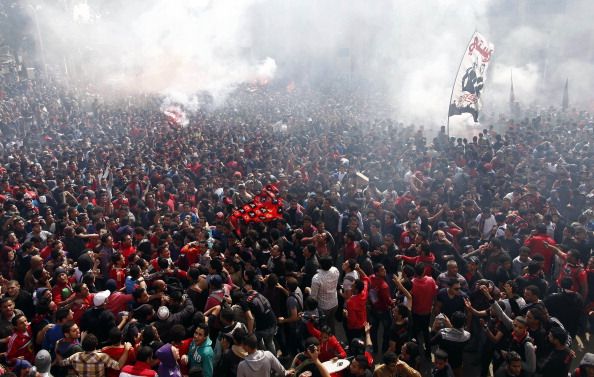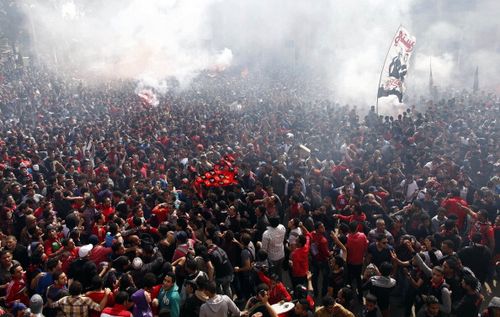
Egypt's World Cup qualifier faces threat from militant football fans 'Ultras'
Militant, street battle-hardened soccer fans played a key role in toppling Egyptian President Hosni Mubarak and resisting the military rulers who succeeded him.
Almost three years later and four months after the military removed from office Egypt’s first democratically elected president, the stage appears to be set for renewed confrontations with the fans, one of the country’s largest civic groups.

The potential for confrontation is compounded by Egypt’s 6-1 loss earlier this month in a crucial 2014 World Cup qualifier against Ghana. Opposition forces and supporters of deposed President Mohammed Morsi, a leader of the Muslim Brotherhood, blame Egypt’s defeat on military strongman General Abdel Fattah al-Sisi.
“You jinxed us, el-Sisi,” said Mohammed Dardeer on Facebook, describing the general as “religiously defiled” in a comment reminiscent of perceptions in Iran that blamed the Islamic republic’s soccer failures on the intense interest in the game displayed by former president Mahmoud Ahmadinejad.
Ghana defeated Egypt at a time when the country is deeply divided between supporters and opponents of the military that deposed President Mohamed Morsi and brutally cracked down on his Brotherhood.
The coup prompted many of the military’s opponents to view the national team as representing the regime rather than the country much as militant soccer fans did under Mubarak. That earned them charges of being traitors by those who see the Brotherhood rather than the military as the greatest obstacle to resolving Egypt’s political crisis.
“When a large number of Egyptians, too many to be ignored, felt happy after our national team lost to Ghana, didn’t the coup organizers ask themselves why they felt this way towards their national team? They most likely will not bother themselves to think about it, but will claim naively, ‘It is out of spite so that no victories, not even in football, will be attributed to General Al-Sisi… Al-Sisi’s Egypt is no longer the Egypt of love that celebrates victories, as tyranny and injustice cannot win; they are defeated in every aspect, whether militarily, as in 1967 (Israel’s defeat of Egypt), or on the sports field. It is ironic that one of the coup leaders called the football result a catastrophe, which was what the 1967 defeat was called.” quipped Amira Abo el-Fetouh in the Middle East Monitor.
Ghana’s stunning thrashing of Egypt did persuade the military to allow some 30,000 fans to attend the return match in an out-of-the-way Cairo stadium scheduled for November 19 despite a ban on spectators in stadia designed to avert political protests.
The symbolism of Egypt’s performance – victory or defeat – in the return match weighs heavy on the game given the regime’s need to project itself more positively internationally, and to counter the analogy of defeats on the military and the soccer battlefields.
The symbolism is all the greater with General Al-Sisi also celebrating his birthday on November 19.
The government’s decision to open the World Cup qualifier to spectators prompted Mohammed Yussef, the manager of storied Cairo club Al Ahli SC, to demand that fans also be allowed to attend the team’s African Championship match in Cairo on November 9 against South Africa’s Orlando Pirates.